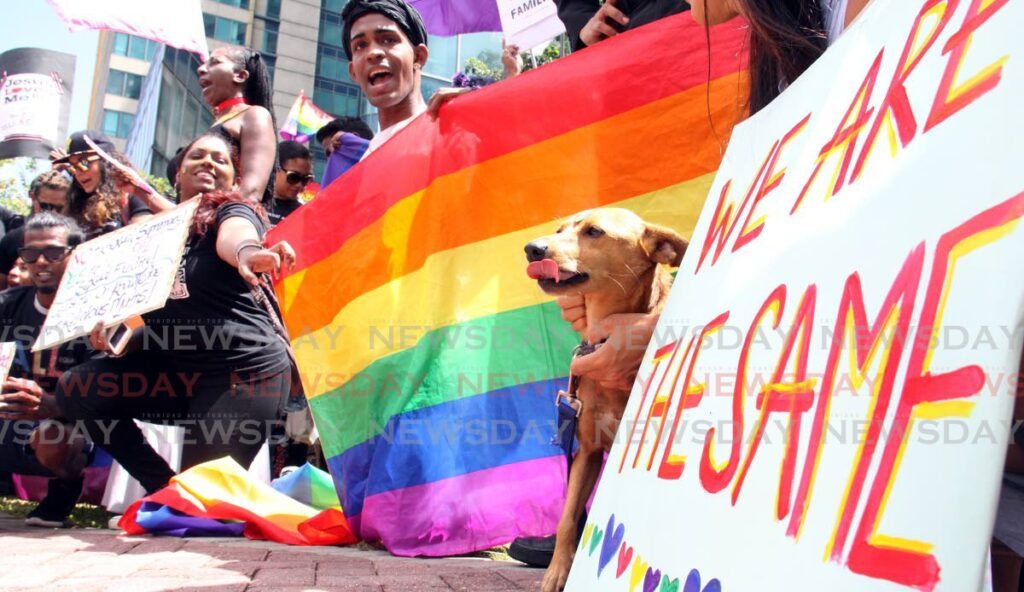Hope for change

On November 29, the Court of Appeal is expected to deliver its judgment on a landmark 2018 High Court ruling that declared sections of the Sexual Offences Act unconstitutional.
Up for review are Sections 13 and 16 which criminalise consensual same-sex intimacy while imposing disproportionate penalties on relationships between men.
One projected result is that the government will take the case to the Privy Council if it is unsuccessful at the Court of Appeal.
While the government might be seen as pro-homophobia by taking this legal approach, the then-Attorney General, Faris Al-Rawi, suggested that it might prove necessary to ensure the unassailability of the legislative change.
"It's the only way the issue can be properly settled," Mr Al-Rawi said after the decision in 2018.
Activist Jason Jones has pursued the overturn of the law since 2017.
Mr Jones, speaking on the BBC's Hardtalk on November 7, told interviewer Allan Little that the government may prefer to take the case to the Privy Council and be insulated from fallout should the UK court uphold the High Court ruling.
Mr Jones has been a vocal rallying point for LGBTQ+ rights even after the High Court ruling.
In 2019, he spoke at the British parliament in a well-attended address on the impact of outdated UK laws and their persistence in former colonies. The UK partially decriminalised consensual same-sex relationships for men over 21 in 1967 and lowered the age to 18 in 1994.
A decision by the Privy Council would offer an important precedent for all former colonies that rely on UK laws that largely don't exist, and overturn oppressive articles of law that remain protected by the savings-law provisions of their constitutions, following TT's example.
In 2020, Mr Jones announced a collaboration with UWI and the University of London to measure public sentiment following the High Court ruling.
That sentiment continues to change globally.
The local Catholic Church took a distinctly modern approach to its position on homosexuality following Pope Francis' declaration in 2023 that homosexuality is not a crime, though the church still considers it a sin.
Formally, the Catholic Church urges its flock to consider charity and compassion in dealing with this matter of morality.
The Council of Churches is an interested party in the deliberation of the Court of Appeal, and other denominations remain adamant that the law should remain. Controversies and discourse will continue.
If Pope Francis can acknowledge people's rights to protection under secular law, Mr Jones' contest of Sections 13 and 16, undertaken on behalf of the LGBTQ+ community, must be procedural and not malevolent.

Comments
"Hope for change"